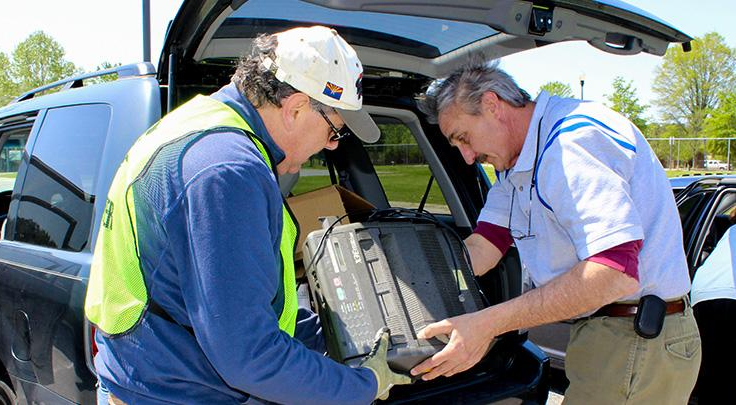Recycling in the state of Georgia
Recycling in the state of Georgia, USA, plays a vital role in promoting environmental sustainability and reducing the impact of waste on the ecosystem. Georgia has made significant strides in establishing recycling programs and raising awareness about the importance of recycling among its residents and businesses.
One of the key factors driving recycling efforts in Georgia is the state’s commitment to environmental stewardship. Georgia’s government and environmental agencies have implemented initiatives to encourage and support recycling practices. These efforts include providing grants and funding to local communities and organizations to enhance recycling infrastructure and education programs. Additionally, the state has enacted legislation and regulations to promote recycling and waste reduction, emphasizing the importance of recycling for a cleaner and healthier environment.
In Georgia, recycling programs cover a wide range of materials, including paper, plastics, glass, aluminum, and electronic waste. Many municipalities in the state offer curbside recycling services, making it convenient for residents to separate recyclable materials from their regular waste. Recycling drop-off centers are also available, allowing individuals and businesses to bring their recyclables for proper disposal. These efforts have significantly increased the accessibility and convenience of recycling for Georgia’s population.
Another notable aspect of recycling in Georgia is the focus on education and awareness. Public campaigns, school programs, and community events are organized to educate residents about the benefits of recycling and how to participate effectively. By emphasizing the importance of recycling and providing information on proper sorting and disposal methods, Georgia aims to foster a culture of recycling and waste reduction across the state.
Furthermore, Georgia’s recycling industry plays an essential role in the state’s economy. The recycling sector provides jobs and economic opportunities, contributing to local and statewide economic growth. By supporting recycling efforts, Georgia promotes a circular economy, where materials are reused and recycled, reducing the need for virgin resources and minimizing waste sent to landfills.
However, despite the progress made, there are still challenges to overcome in Georgia’s recycling landscape. Contamination of recyclables remains a concern, as improper sorting can lead to lower-quality materials and hinder the recycling process. Continued education and outreach efforts are necessary to ensure residents and businesses understand the importance of proper recycling practices and the impact of contamination.
In conclusion, recycling in Georgia is a significant component of the state’s commitment to environmental sustainability and waste reduction. Through robust recycling programs, education initiatives, and the support of local communities and businesses, Georgia is making significant strides in promoting recycling as a means to conserve resources, protect the environment, and contribute to a more sustainable future.
Waste management issues in Marietta, Georgia
Waste management issues in Marietta, Georgia, pose significant challenges in maintaining a clean and sustainable environment. The city faces various waste management problems related to waste disposal, recycling, and community participation.
One of the primary concerns in Marietta is the increasing volume of waste generated by its growing population. With urban development and commercial activities, the amount of municipal solid waste has surged, placing pressure on waste management infrastructure. Adequate waste disposal methods are crucial to prevent overflow in landfills and the accumulation of waste in public spaces.
Recycling participation is another area that requires attention in Marietta. While recycling programs exist, increasing community engagement and awareness is essential to maximize their effectiveness. Encouraging residents and businesses to properly sort recyclables and utilize recycling facilities can significantly reduce the amount of waste sent to landfills. Education campaigns and convenient recycling options can help address this issue.
Illegal dumping is also a problem in Marietta. Improper waste disposal, such as dumping trash in unauthorized locations, not only leads to environmental degradation but also creates health and safety hazards. Addressing this issue requires implementing stricter penalties and enforcement measures, as well as promoting accessible and affordable waste disposal options for residents.
According to Marietta Dumpster Guys, another waste management issue in Marietta is the proper management of hazardous waste. Disposing of hazardous materials, such as chemicals, electronics, and medical waste, requires specialized handling to prevent harm to the environment and human health. The city needs to provide convenient and safe avenues for residents and businesses to dispose of hazardous waste properly.
To address these waste management and dumpster rental challenges, Marietta should focus on several strategies. Enhancing waste collection and disposal infrastructure, including waste treatment and recycling facilities, can improve efficiency and reduce the environmental impact of waste. Increasing community awareness through education programs and campaigns can encourage residents and businesses to adopt responsible waste management practices. Collaboration with recycling companies and organizations can also help develop innovative solutions and promote the circular economy by encouraging reuse and recycling.
In conclusion, Marietta, GA, faces several waste management issues, including waste disposal, recycling participation, illegal dumping, and hazardous waste management. By implementing comprehensive waste management strategies, including improved infrastructure, community engagement, and targeted initiatives, Marietta can work towards a more sustainable and environmentally friendly waste management system.

